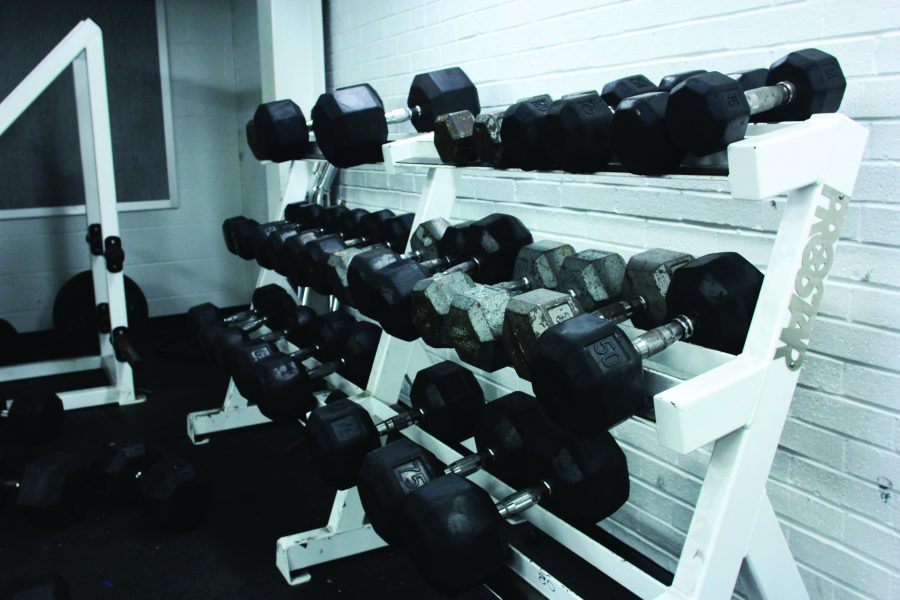Protein, a human necessity, is in every cell in the body; it is important to repair tissue, make enzymes and rebuild muscle. With the obvious health benefits of protein, companies have jumped at the opportunity to create and sell supplements that provide extra protein. Protein shakes make up 70 percent of the sports nutrition category in the United States at $4.7 billion, according to an article on foodnavigator-usa.com.
At first glance, one might assume protein supplements are the solution to becoming fit and healthy; however, it is the myth that “protein builds muscles” that drives consumers to buy supplements, only to be disappointed that they magically didn’t build muscle overnight.
In fact, eating too much protein can lead to unwanted weight gain. Healthline.com reported that the average human should consume about .36 grams of protein per pound of body weight, which means about 56 grams per day for the average male and 46 for the average female.
While this seems like a lot per day, some serving sizes of protein powder can include up to 80 grams of protein and carbohydrates. With one gram of protein and carbohydrates each packing in 4 calories, unneeded calories add up and the body eventually stores them as fat.
With different body types there different amounts of protein people should consume.
Senior Tyler Barfknecht sees this need to regulate how much protein one intakes each day in order to maintain a healthy lifestyle.
“It’s so case-per-case. Like if I’m trying to bulk up there’s no way I’m going to get the protein I need just from the normal food that I eat on a daily basis,” he said. “But if [it’s just your normal day] then [the best way to get protein] is from normal food.”
While protein supplements are often thought to help increase strength, it’s not the only option when it comes to recovering. When students ask head football coach Van Vanatta whether they should use supplements, Vanatta usually recommends something different.
[quote]My honest opinion is that young people should not use protein drinks, if asked, I recommend a muscle gainer, since it has amino acids and nutrients needed to replace and heal muscle tears,” Vanatta said. “I tell kids to find a nighttime recovery (amino acids) since it helps heal the muscle and recover for the next days exercise.[/quote]
While Junior DJ Baker drinks protein occasionally before or after workouts to help him build muscle and satisfy him until his next meal, he also knows that in order to maintain a healthy diet one must balance protein intake with other important nutrients like carbohydrates, vitamins and minerals.
“Protein is still calories, and if you consume too many calories, then you can gain a little more unwanted weight,” Baker said. “It’s kind of a yin yang type of thing where there’s a certain point where it gets too much, and there’s a certain point where you don’t have enough. I think if you really find a healthy balance it can downside some of the negatives of having too much protein in the body.”
One misconception that people sometimes have with protein supplements is that drinking them will automatically increase muscle mass, which is far from the truth. In fact, consuming protein supplements without working out can lead to an increase in body fat. Baker recognizes that and decides whether or not to use protein supplements before or after physical activity.
“Looking at protein and how much athletes need, the optimal amounts aren’t known but usually because athletes eat more than people who are non athletes they tend to get enough protein from food,and in the big picture of things, they probably don’t need the extra protein powder,” said Roberta Duyff author of ‘Academy of Nutrition and Dietetics Complete Food and Nutrition Guide’. “I think people think that protein is going to make them stronger… physical activity, muscle building, endurance exercises is really what gives people extra strength. It’s not taking protein powder.”
Barfknecht also sometimes wonders what is actually inside the protein powder that people so often consume. He believes eating too much protein can cause more harm than good.
“I feel like some stuff in their is not totally legal for every sport ever. The Food and Drug Administration(FDA) doesn’t regulate it all,” Barfknecht said. “Your body can only break down so much protein so quick, which is why some people recommend higher carb diets, just because carbs are the simplest thing for your body to break down. So yeah, extra protein than needed would not be good for your body.”
With ingredient names like Raubidioside A, Xanthan gum and Lecithin, it’s no wonder Barfknecht questions what’s inside these protein shakes. According to and article on stack.com, out of 58 tested supplements, 13 came back with small amounts of steroids, and six came back testing positive for banned stimulants.
“The issue with General Nutrition Centers(GNC) and supplement stores is that they do not regulate what is in their product,” Vanatta said. “The NCAA has banned many substances put in workout supplements, so as an athlete you have to be careful what we use.”
While some think that only athletes use protein powder, and can benefit from them, Duyff says that it is often used for an ill patient who is unable to intake the recommended amount of protein.
“[The people that would benefit the most from protein supplements] would most likely be someone who has some kind of health problem or health condition, and then it would be clinically recommended,” Duyff said. “So it might be someone who has minimal food intake because they have cancer, or some other kind of problems. Most of those people tend to be older than a high school athlete. Most athletes get enough protein and amino acids from their food, so protein powder really isn’t needed.”
Do you consume protein powder? Why or why not? Comment your response down below.
Categories:
Protein powder doesn’t promote spontaneous muscle gains
April 2, 2018
0
Tags:


















































































